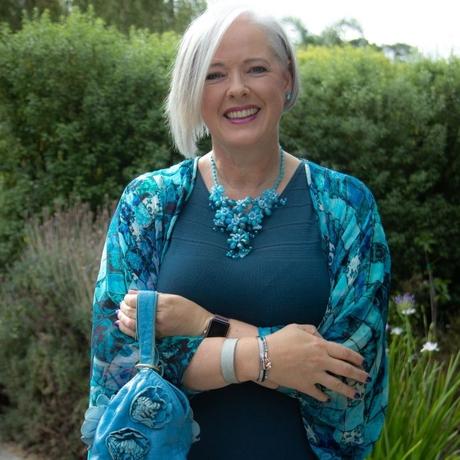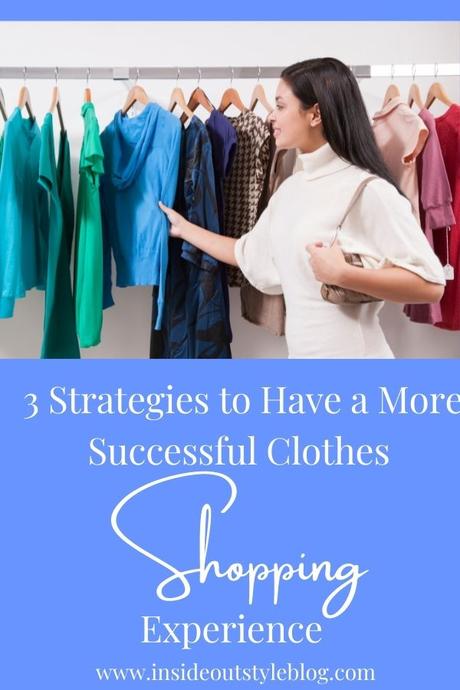



Do you ever find yourself staring at your closet full of clothes and feeling like you’ve got absolutely nothing to wear? During those dark times, it might seem like the only logical course of action is to go shopping but shopping is frequently the last thing you should do.
The very fact that you just looked at a wardrobe bursting with clothes and said to yourself “there is nothing here” proves that you are not thinking straight. Walk into a store with that kind of logic and you’re almost guaranteed to walk out clothing you neither need nor actually want.
In this video I answer a reader question who want to know how she can avoid buying random pants and sweaters, never wearing them but keeping them forever in her closet
Watch the Video on How to Shop for Clothes that Look Stylish
&iv;&modestbranding;&rel;&autohide;&playsinline;&autoplay;
If you’re not wearing anything new so why are you buying these pieces? Look at your shopping habits. Why are you buying these pieces? What is the reason that you are drawn to these pieces?
The Sales Pitch
Did you buy something even though it’s not the right thing because the sales assistant was so helpful and you found it hard to say no? Sales people, no matter how charming and helpful they are, aren’t there to be our friends. No matter how friendly or pleasant a sales person is, their purpose is singular: to sell us something, this is how they stay employed! If you are feeling like you are being “talked-into” buying a garment, or that you should buy something as the sales assistant has been so helpful, then it’s time to walk away and leave those garments behind. They are just going to create more clutter in your wardrobe.
If this sounds like you, try taking a walk or catching up with a friend for drinks, instead of a trip to your local fashion store or boutique.
Aspirational Purchasing
I’ve bought aspirational clothing, knowing the style isn’t right but because the clothing represents something I want to be, or for a body shape I don’t have. I struggle to pass it on as I’ve sunk hard-earned money into it. You may also have purchased items for a life you would like to have, or someone has told us we should want to have. But we don’t actually have the lifestyle to wear it (I love ballgowns, but I never have any occasion to wear them).
Once you’ve bought something, you’ve sunk a cost into it and it’s much harder to let it go. Part of your brain keeps telling you that since an item was expensive (even if it’s not that expensive), you ought to keep it around just in case. The years go by and the item sits on your wardrobe, taking up space but never used again.
Your wardrobe should reflect your current lifestyle. It’s very easy to dress our “dream selves” instead of our more realistic selves or even have a closet full of clothes that suited our “past selves” but that no longer suit our lifestyle. However it’s important to focus on what you actually wear the most and build your wardrobe around that. Check out my posts on how clothes fit your lifestyle here…
Advertising
The effects of advertising are powerful. Imagine the piles and piles of money spent on advertising every year. It’s astronomical. Why do companies spend so much money on advertising? They would only do so if it worked. Some marketing emails can be useful (who doesn’t love a discount code?) but if you are constantly buying things that aren’t right for you, then unsubscribe.
Shopping should be an enjoyable experience. I have three key strategies to help you make better decisions in a store. This will prevent you from taking the wrong pieces home and ensure you’re getting the most out of every purchase!
1. Style Education
The more you know about your personality and how that influences your style, the easier it becomes to shop. You need to arm yourself with a great color and style education and do not shop until you have that information.
Understanding what suits you – the colours, contrasts, clothing styles and lines, where to add the details, where to keep free and plain, which proportions are best for you and all those other physical aspects of fabric selection are important and form your style foundation.
Style is something that I’ve had to learn. We were never taught style education at school and I was not lucky enough to have a parent who had any sort of grasp of style. I did not naturally have an innate ability to create a stylish outfit. It’s the reason why I started this blog to share with you what I’ve learned from my years of study. I created my 7 Steps to Style program to package up all that knowledge and give you a style education that will empower you. I encourage you to join my 7 Steps to Style program. Investing in your style education is one of the best investments you’ll ever make in yourself. 7 Steps to Style also has an amazing and supportive Facebook community. The group also has four on-demand personal stylists that I have personally trained to help you. These stylists are there to give you feedback on what does and doesn’t work in your outfits, providing invaluable feedback when you are learning and educating yourself about your style.

I knew the minute I saw this bag, this necklace, and this kimono (all at different times in different stores) that they were right for me – this made the shopping experience so much more fun and enjoyable.
Knowing what you LOVE, what lights you up makes shopping so much easier. When you see something that is right up your sartorial alley you know immediately. No need to be “talked into it” by a sales assistant as you know it’s exactly right for you and your style.
2. Style Recipe
Your Style Recipe includes the ingredients that go into making up your unique style. In my opinion, it’s one of the most useful tools anyone can have when developing their style.
Creating your style recipe gives you a great framework to start playing with and exploring the personality dressing styles in a way that is right and true for you.
Why should it matter? What I’ve discovered over the years of being an image consultant, the better we can pin down your personal style, the better buying choices we can make and so you’ll love your wardrobe a whole lot more because the clothes really reflect who you are on the inside – the authentic you.
3. Rate your purchases
There is no point in filling your wardrobe pieces that don’t tick all your boxes. Before you leave the store, rate the garment on a scale of 1 to 10 with 10 being perfect and 1 being total crap. Then don’t leave the store without it being at least an 8. You don’t want a wardrobe full of average, let alone a wardrobe full of “not great”. So rate it an 8 or more to have a wardrobe of great!
Remember that we find it harder to let go of stuff we own, so making good decisions before you buy is so important if you want to be a more conscious consumer.
When you’re out shopping and deciding whether or not you should bring home a new item, there are some key questions you can ask yourself to know if the item will earn a place in your wardrobe? Check the 11 questions to know it’s a winner…
Further Reading
7 Essential Tips For Narrowing Down Your Options When Shopping for Clothes
11 Questions to Know it’s a Winner Should Be Added to Your Wardrobe
The 7 Words That You Must Know That Tell You the Colour of the Garment That You’re Trying On is Completely Wrong For You






